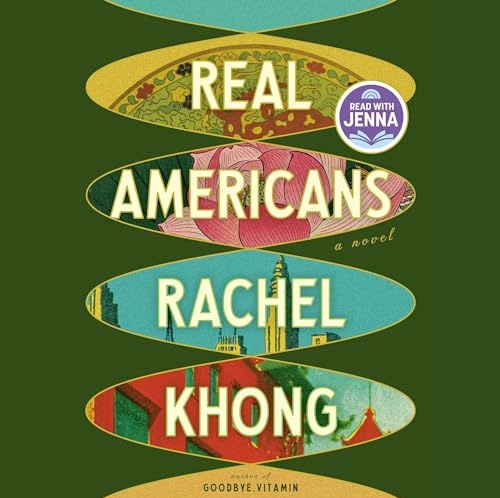BookLife Review by Carol O’Day: Real Americans (Rachel Khong, author)
Contemporary fiction, family secrets, cultural identity, genetic engineering and genetic editing, Chinese-Americans, pharmaceutical companies, inherited wealth, Beijing, New York, Tampa
Identity, family secrets and genetic editing swirl around three generations of characters in Rachel Khong’s novel. In 1999, Lily is an intern at a NYC media company and meets Matthew at a company party. Matthew is a trust fund baby in disguise, attending the party to support his cousin’s company. Lily is the only child of a pair of Chinese immigrants, Charles and May (Mei) who fled the Cultural Revolution and settled in Tampa, Florida.. Lily and Matthew connect effortlessly and before long she is introduced to his wealthy family as she begins to understand the magnitude of his wealth. It is not until their son is born that family secrets bubble to the surface. Lily’s mother once worked for and collaborated with Matthew’s father, Otto, the head of a major pharmaceutical empire, Maier Pharmaceuticals.
Fast-forward to 2021 and the reader stands in the shoes of Nick Chen, Lily’s son. Raised as an only child of a single mother, Nick knows little to nothing about his father. That cannot hold, however, and Nick investigates and discovers that Matthew, and his extended family, are alive and well in New York. Nick makes contact but keeps it secret from his mother. He finagles his way to Yale, funded without his mother’s knowledge by Matthew, and does and on-again, off-again dance with his estranged father. Eventually, Lily discovers his shenanigans and mother and son argue about lies and secrets and good intentions.
Though half Chinese-American and half European-American, Nick bears almost no physical attributes of his Chinese gene pool. It is not until the final third of the novel that we learn Mei’s backstory, Lily’s family history. Mei and Charles’ research was in the area of genetics. The research was funded by Maier pharmaceuticals. They developed an unapproved method of editing genes which they administered to their own children, in an effort to test the research method’s effectiveness in suppressing one parent’s genetic impact on his or her children. It worked with Lily, and suppressed much of Lily’s genetic programming, rendering him an almost replica of his father, physically.
In a twist of fate, largely orchestrated by Mei herself, Nick meets Mei and she reveals herself to him. Lily refuses to meet her mother, still angry nearly a quarter century later. Mei shares her story with Nick, and the two bond in her old age, despite Lily’s objections and refusal to engage.
Real Americans poses thorny issues of identity and choice. Can we identify with our genetic history if we do not exhibit outward physical traits associated with that group? What makes someone American, or Chinese? What constitutes family? Are there valid reasons for hiding a child’s paternity? For editing a child’s DNA? Are we on the precipice of genetically engineering future children’s characteristics as a matter of choice? Is there not a slippery slope to dangerous eugenics? These questions and more are embedded in the novel, in artful ways woven into the family narrative.
There is an emphasis here on the first and third generations, leaving the middle, the parents who unwittingly bore the child with altered genes, somewhat incompletely drawn. They are to an extent the vessels that carried the acts of Mei into the life of Nick, but at times the short-hand left me wanting to know more about their decision to split, Lily’s insistence of living clear across the country from Matthew and not only raising Nick alone and unassisted by the Maiers but hiding his father’s family from him. What did she feel and experience? How did she come to the decision that such extreme action was necessary? Nonetheless, Mei and Nick are both richly drawn, giving us a window into the childhood experiences and cultural influences that triggered Mei’s passion for scientific inquiry and her staunch identification as an American. Similarly, the legacy Nick inherited, while loaded with conflict, formed his trajectory in the field of ethical bio pharmacological ventures. It also primed him to be the perfect vessel and keeper of his grandmother Mei’s story and legacy.
Support local bookstores and BookLife: Reviews for Readers by purchasing Real Americans using the link below:





